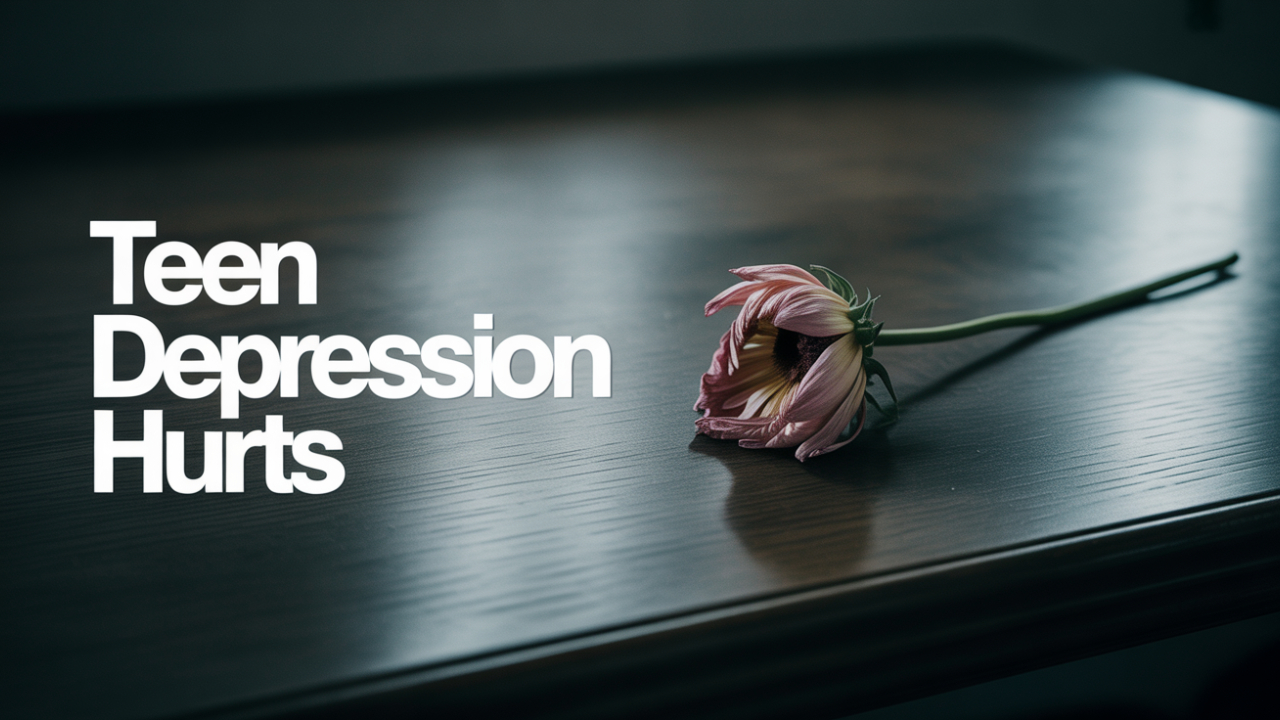Understanding What Causes Depression in Teens – Key Insights
Depression affects millions of teenagers across the United States, and Orange County is no exception. At Adolescent Mental Health, we see how this mental health challenge can impact every part of a teen’s life — from school to relationships to overall health.
Understanding what causes depression in teens is a critical first step in helping them recover and lead healthier lives. This blog explores key factors behind teen depression, including biological, emotional, social, and environmental influences. We also explain how mental health treatment and support from a mental health professional can help teens regain hope and stability.
What Is Teen Depression?
Teen depression is a serious mental disorder that goes beyond occasional sadness or frustration. It involves persistent changes in mood, behavior, sleep, and appetite, often leading to feelings of worthlessness, irritability, fatigue, and anger. Some teens may even experience suicidal ideation, which requires immediate attention and intervention.
The American Psychiatric Association defines major depressive disorder as a diagnosable condition with specific symptoms that last for at least two weeks. Depression can also appear as part of a mood disorder, such as bipolar disorder or seasonal affective disorder.
Identifying the underlying causes helps parents, caregivers, and health care providers create effective plans for management and recovery.

Biological and Genetic Factors
Biology and genetics play a major role in teen depression. Teens with a parent or close relative who has struggled with depression or another mental disorder, like bipolar disorder or personality disorder, are at higher risk.
Hormonal changes during puberty, influenced by hormones like estrogen and testosterone, can also affect emotional regulation. Brain chemistry, particularly neurotransmitters like serotonin, influences mood and emotion. An imbalance can contribute to depression, anxiety, or even mania.
Certain medical conditions or diseases that cause chronic pain, insomnia, headache, or fatigue can also lead to depression. A physician or health care provider can perform appropriate screening to rule out medical causes.
Environmental Stressors
Life events and environmental pressures significantly affect teens’ mental health. Common stressors include:
Family Conflict and Abuse
A teen exposed to violence, abuse, or sexual abuse at home often develops deep emotional scars. High-conflict households or a breakup of the family unit can lead to feelings of grief, shame, and insecurity.
Academic and Social Pressure
Teens in Orange County and beyond face intense academic demands. School counselors often see students overwhelmed by exams, college applications, and extracurriculars. Peer pressure and the fear of missing out can intensify stress, especially when combined with social isolation from supportive relationships.
Substance Abuse and Alcohol Use
Teens may turn to alcohol or drugs to escape emotional pain, but substance abuse can worsen depressive symptoms and cause relapse into risky behaviors. This is why proper management and prevention are critical.
Psychological and Emotional Factors
Some teens have cognitive or emotional traits that increase depression risk. Those who are highly self-critical, have low self-esteem, or who ruminate on negative thoughts often experience prolonged sadness. Teens coping with trauma, grief, a breakup, or shame are also more vulnerable.
Co-occurring mental health conditions, like attention deficit hyperactivity disorder (ADHD), anxiety, or personality disorders, often appear alongside depression. Recognizing these connections helps in planning proper mental health treatment.
Puberty, Lifestyle, and Development
Rapid physical and emotional development during puberty can disrupt a teen’s lifestyle and sense of identity. Teens may struggle to balance school, peer pressure, and independence while feeling emotionally overwhelmed.
Lifestyle choices, such as lack of exercise, poor nutrition, and excessive screen time, can exacerbate mood and sleep problems. Building healthy habits like physical activity, balanced meals, and adequate rest supports overall health and mental health.

Signs That Require Immediate Attention
Some warning signs in teens should prompt immediate action:
Persistent irritability, anger, or shame
Withdrawal from family, friends, or school
Sudden drop in grades
Extreme fatigue or insomnia
Expressions of suicidal ideation or talk of suicide prevention
If your teen shows any of these signs, call a crisis hotline or 988 — the suicide prevention and mental health emergency number — for immediate support.
How Parents and Caregivers Can Help
As a parent or caregiver, your involvement is essential. Here are ways you can help:
Create a safe space at home where your teen feels heard and respected.
Encourage open communication about feelings and emotions.
Support healthy lifestyle choices, like better sleep, exercise, and balanced medicine use.
Help them find a mental health professional or health care provider experienced in adolescent care.
Consider therapies such as dialectical behavior therapy (DBT) or psychology-based counseling for ongoing support.
Professional Help and Treatment Options
At Adolescent Mental Health, our team specializes in evidence-based care for teens. Treatment may include:
Talk therapy guided by psychology and psychiatry professionals
Antidepressant medication, such as fluoxetine, prescribed and monitored by a health professional
Skills-based therapies like dialectical behavior therapy to manage emotion regulation, stress, and attention
Support groups to help address social isolation and build hope
Every patient receives an individualized plan that considers their unique needs, medical history, and personal goals. Treatment also includes education for parents and caregivers on how to help teens avoid relapse and maintain progress.
Why Early Intervention Matters
Untreated depression can lead to worsening mental health, risky behavior, substance abuse, and even suicide. Early screening, diagnosis, and management improve outcomes and help teens regain confidence and hope.
Contact Adolescent Mental Health Today
Understanding what causes depression in teens allows families to take meaningful steps forward. With the right support, your teen can find healing and build resilience. At Adolescent Mental Health, we provide expert mental health treatment, therapy, and crisis hotline resources when needed.
If your teen is struggling, contact our team today. Together, we can create a safe space for recovery, guided by compassionate care and evidence-based practice.
Call us now or visit our website to schedule a consultation. Your teen’s future deserves the best in mental health care.
Frequently Asked Questions
1. What are the most common signs of depression in teens?
The most common signs include persistent sadness, irritability, fatigue, changes in sleep or appetite, withdrawal from friends and family, and a drop in school performance. Teens may also express feelings of shame, worthlessness, or suicidal ideation. Physical symptoms like headache or pain without a clear cause are also possible. If you notice these changes, reach out to a mental health professional or health care provider for an evaluation.
2. How does social media and peer pressure contribute to teen depression?
Peer pressure, social isolation, and the fear of missing out are amplified by constant social media use. Teens often compare themselves to others, which can lower self-esteem and worsen mood. Negative interactions or violence, such as online bullying, can also trigger or worsen symptoms. Parents and caregivers can help by setting limits, encouraging real-life social connections, and monitoring for harmful online behavior.
3. What treatments are available for teens with depression?
Treatment options include psychology-based therapy, dialectical behavior therapy, and psychiatry-supervised antidepressant medication like fluoxetine, when appropriate. Therapy helps teens manage emotions, change negative thinking patterns, and build coping skills. Lifestyle changes, such as regular exercise, healthy eating, and structured sleep schedules, are also recommended. Each patient receives a personalized mental health treatment plan that may include family counseling and ongoing screening to track progress.
4. When should I call a crisis hotline for my teen?
If your teen expresses thoughts of self-harm, suicidal ideation, or mentions planning to hurt themselves, call 988 — the national suicide prevention and crisis hotline — right away. Warning signs include talking about death, giving away belongings, or acting recklessly. Immediate help from trained health professionals can save lives and connect your teen to the right mental health care and safe space for recovery.









